Libraries are one of the pillars of education and professional development. They are essential for creating literate, well-informed, and empowered communities by providing relevant, updated knowledge, while at the same time keeping the social memory and cultural knowledge safe. In the Galapagos Islands, though, access to libraries is limited. Today, the only operational public library in the Galapagos is that of the Galapagos National Park Guides Association (AGIPA) on Santa Cruz Island, which only just recently reopened its doors with the help of the Charles Darwin Foundation (CDF) after 6 years of being shut down. On the three other populated islands the public libraries were shut down or, in the case of Floreana, never existed. There are three active private libraries between Santa Cruz and San Cristobal, one of which is the CDF Library & Archive at its Research Station. Inaugurated in 1979, this is the oldest and largest library in the archipelago, holding more than 8,000 books, and thousands of scientific articles, audiovisual documents, maps and much more. Currently, the library professionals working at CDF are the only ones in the archipelago trained in Librarianship & Information Sciences.
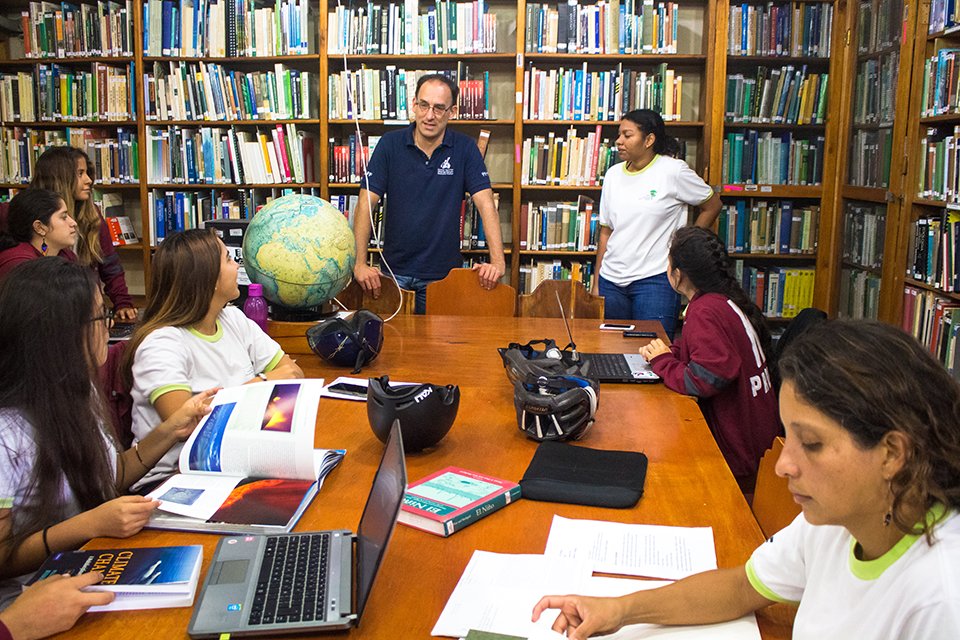
Facilitating library access in the Galapagos
Given the scarcity of public libraries in Galapagos, and considering their importance and the potential benefits for the local community, the CDF Library & Archive started a series of activities aimed at recovering the old, abandoned libraries, and creating new ones in communities throughout the archipelago.
In 2019 we started a mobile library service known as travelling libraries, aimed primarily at serving the Galapagos National Park employees, naturalist guides, local teachers and schools. We conducted various surveys throughout the four populated islands to determine what educational resources these communities need and want. With this information, we were able to work with target populations to create personalized library collections. These collections are strongly focused on conservation and natural sciences, but they also include local history, literature and technical books. This project allows CDF to support conservation-related professionals while encouraging the local population to strengthen their reading and writing skills ultimately granting them access to all possible types of knowledge.
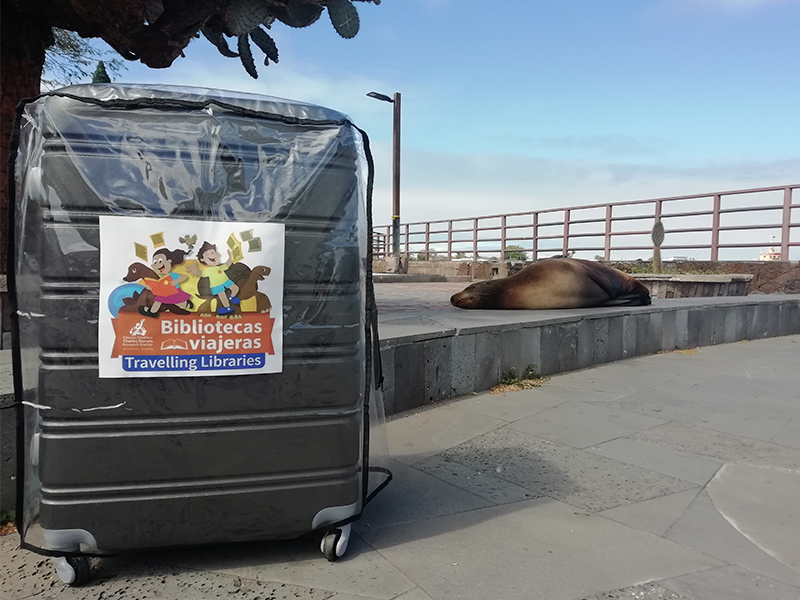
In October 2019, we trialed this project by bringing the first collections inside suitcases to each of the populated islands. These traveling libraries will be kept with local project partners in each port for 3 to 6 months. Then, feedback will be gathered regarding the collection use (e.g. number and type of users, checked-out titles, frequency and duration of lending, users’ needs and opinions), which will be used to tailor the next collection.
The future of the travelling libraries
During 2020, the travelling libraries will continue to circulate throughout the islands, strengthening the links with our committed local partners. The program is expected to extend to the highlands of Santa Cruz, that cannot be reached by AGIPA. There, efforts will focus on reaching the Quechua-speaking population of migrant workers, from the Salasaca and Otavalo Indigenous peoples from the Ecuadorian Andes, to reinforce bilingual and intercultural education.
Based on the feedback from the first trials, we will work on tailoring the selection of documents and information included in the collections, to better suit the needs of the communities. This will include carefully chosen activities related to information literacy, reading, writing and research skills, and environmental education, which will allow the process of creating and circulating the travelling libraries to be more community-based and collective.
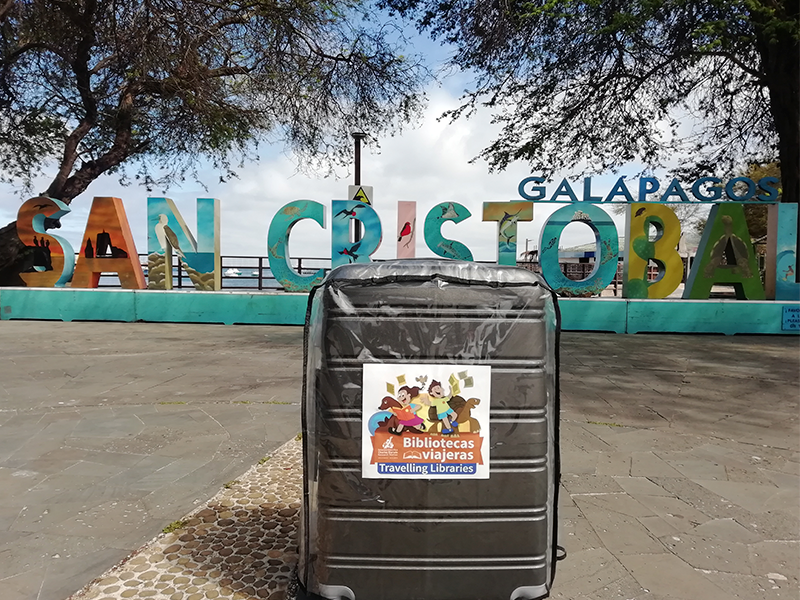
For most of the young Galapagos population this will be their first exposure to a library. By providing a service tailored to their needs and wants, the local communities will appreciate the value and importance of having such a resource, encouraging them to use it on a regular basis. At the same time, this resource will improve the quality of work of local teachers, park rangers and guides by facilitating access to updated, relevant, and reliable information. Constant monitoring, evaluation, dialogue and learning will allow the project to evolve alongside community needs and expectations.
In 2021, as the travelling libraries continue to develop and improve, and as community interest grows, it is expected that these collections will ultimately stay in one place and act as seeds for the growth of established libraries. The aim of building local libraries will be to encourage the creation of a sustainable network of Galapagos libraries where knowledge can be easily shared across all communities. To ensure the sustainability of this project, we have created an Amazon wish-list for tourists and other visitors to buy books and donate them to the local collections and to the main CDF Library & Archive. After the first year, we will train local partners so they can independently manage the collections. The CDF Library & Archive staff will ensure continuous technical librarianship-related support and advice to the dedicated local partners in charge of the collections so they are able to efficiently manage the library structures and services.
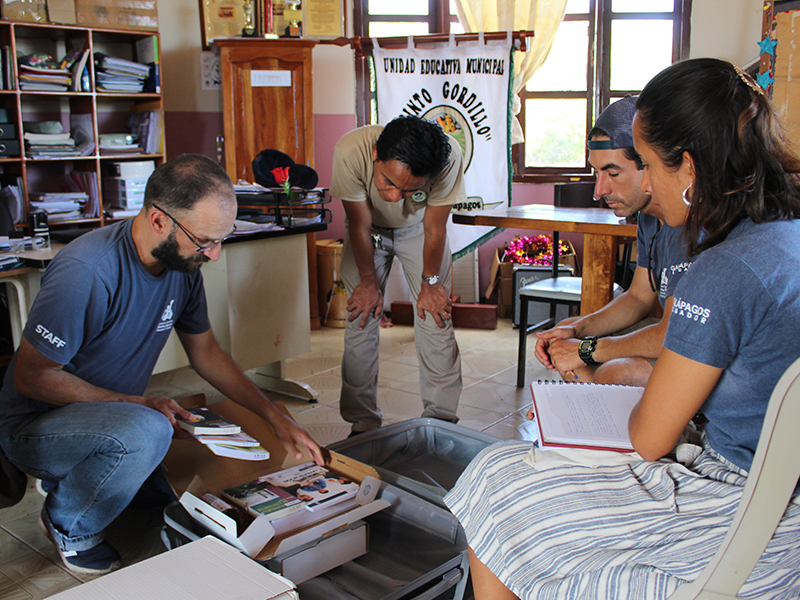
Expected impact
In the first year of activities, we expect the travelling libraries to reach 620 students, 80 teachers and about 80 naturalist guides and park rangers across the four populated islands. In some cases, such as Floreana, we expect to impact the entire school population (20 students and 5 teachers), some of whom have never had a book in their hands. Although the collections are customized for the target audiences, the travelling libraries are accessible to the general public and in subsequent years, efforts will also focus on promoting its use amongst the general population.
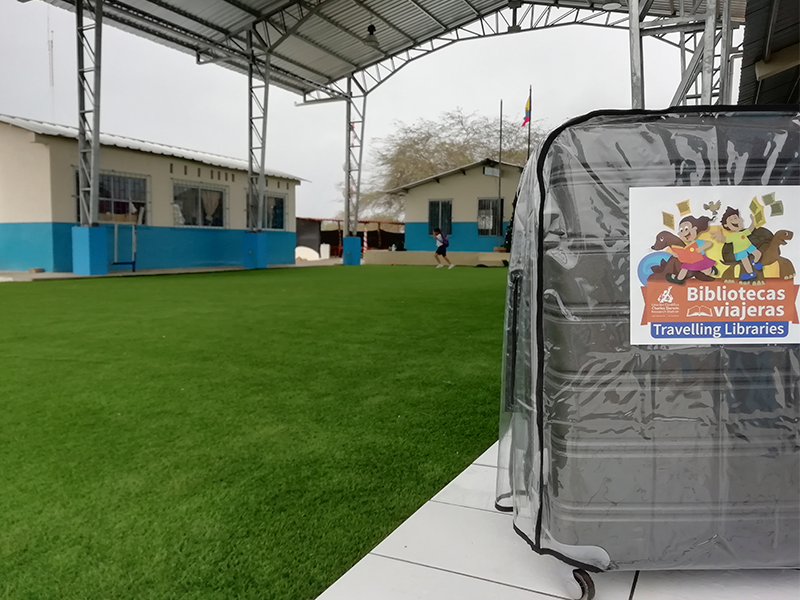
Establishing libraries within the local communities and demonstrating their value is expected to lead to significant cultural impact and potential social change. Education programs will be improved and enriched, training possibilities for local workers and professional will be widened, and the socio-cultural panorama will be nourished with new options and possibilities. Also, an environmental impact is expected, since the travelling libraries will be strongly focused in conservation and supporting environmental education.
If you need more information, please send an email to:
Edgardo Civallero, CDF librarian: edgardo.civallero@fcdarwin.org.ec
Eithne Tynan, Fundraising Area: eithne.tynan@fcdarwin.org.ec




